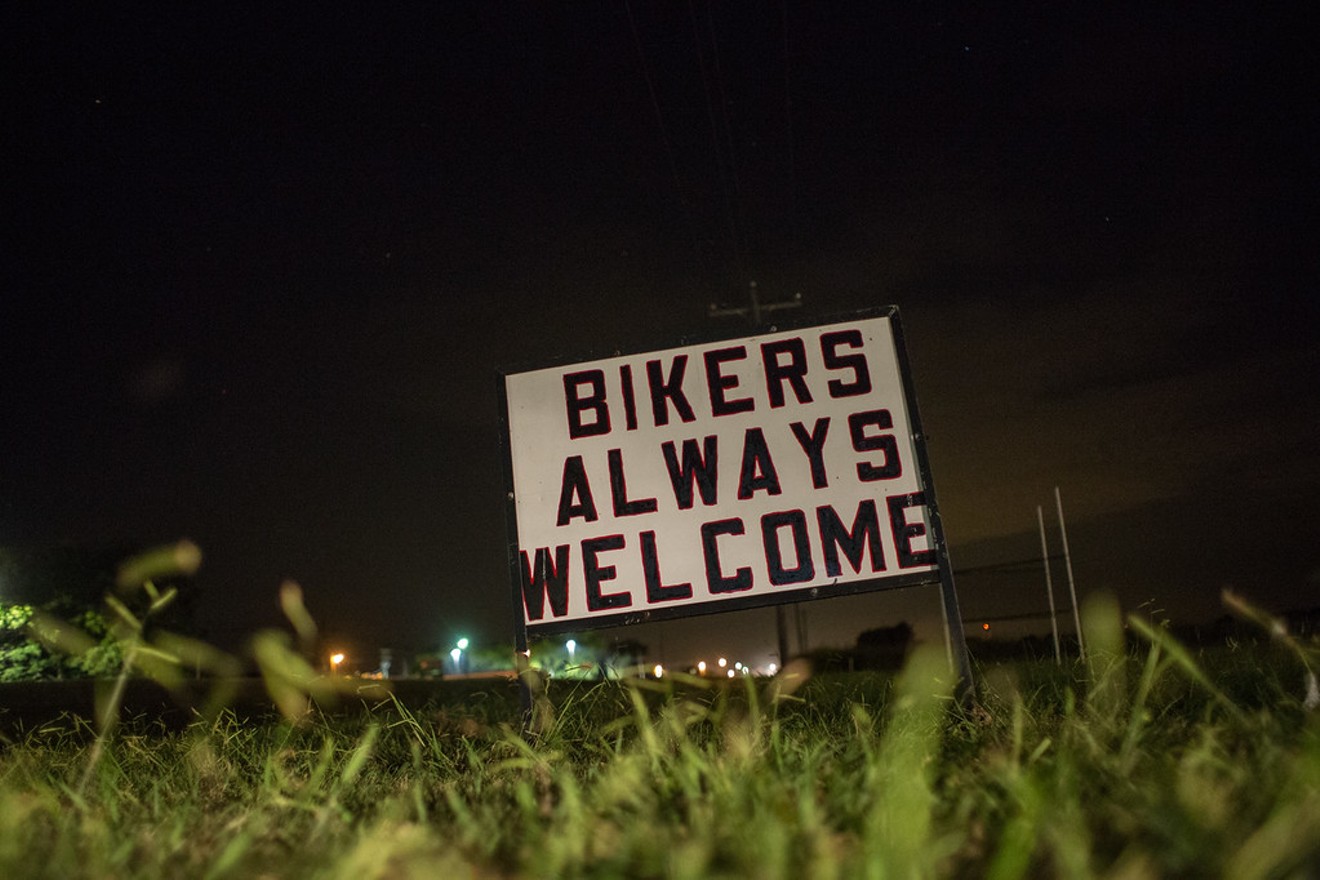Poor and nobody is the theme of a haunting new true-crime podcast on NPR called Buried. Set just outside our city in the meth and motorcycle land of nearby East Texas, it is ostensibly the story of a 24-year-old mother of three who disappeared in 1991. No cop ever lifted a finger to find her.
But it’s not only her story. Reported by George Hale, Buried is the story of this entire corner of the planet — our corner — where poverty, drugs and dissolution bite just as hard out in the boondocks as they do in urban slums. It’s also a heartening tale of human connection and the nobility of mankind in almost unimaginably battering circumstances.
And it’s not over. That’s why I keep going back. Hale is still trying to pull the story apart and tease out the truth of what happened. By the way, our Dallas Police Department is involved in this story and comes off no better than the East Texas authorities, all of whom come off very badly, indeed.
Carey Mae Parker, born May 12, 1967, grew up 43 miles east of downtown Dallas in an area south of Quinlan on Waco Bay, an arm of Lake Tawakoni. The lake, a 38,000-acre reservoir built in 1960, lies in three counties. Hale tells me that may be as good an explanation as any for the utter failure of authorities in any of the three counties over almost three decades to try to find the missing young mother.
“In the very first episode,” Hale says, “I mention that this lake is split into three counties, right down the middle. There’s a spot in the middle where Rains County, Hunt County and Van Zandt County intersect. The thing that makes the most sense is that she’s right there.”
The podcast is told in a rich array of East Texas voices painting an already hard life made that much harder by rural isolation. The missing woman’s relatives, working with Hale and eager for him to find the truth, have been impressively candid, sharing enough tales of incest, drugs and murder to stagger the toughest city dweller.

Carey Mae Parker was last seen in 1991 being taken into police custody outside this East Texas convenience store near Lake Tawakoni. Since then, the Hunt County Sheriff's Department has insisted it had no idea she was missing.
Brittany Gryder, Texas A&M University-Commerce
Six months later, her daughter Brandy waited with other kindergartners to be picked up outside her school in Dallas, but Brandy's father never showed up. Dallas police found him dead of an apparent cocaine overdose in his apartment near Love Field, a cause of death disputed by family members who insist he was clean at the time.
Years after Parker’s disappearance, her children lived temporarily with their grandfather, now dead. The children slept with the old man and were frightened by his violent night terrors. He often bolted from his bed in the middle of the night screaming, “No! No!”
Their grandfather told the children about his recurring nightmare. Years earlier, two men had come to his house in the woods on the shores of Tawakoni and threatened to kill all of the grandchildren if the old man did not stop trying to find out what happened to his daughter. The old man told the children he followed the men into the woods and killed them.
The old man also told the children that he killed a German citizen while stationed in Germany in the Army during the Vietnam War. Hale, a Dallas native who worked as a reporter on the West Bank in Israel for seven years before returning to Texas, is in the process of tracking down the grandfather’s 40-year-old tale of murder in Germany. He already has confirmed many key details. The story of the two men killed in the East Texas woods will be harder to reach.
One of the most compelling voices in Buried is that of Brandy, the little girl left in front of her school by her dead father all those years ago. Now a smart, well-spoken adult living in North Texas, Brandy, whose last name is not used in the podcast, decided in 2010 to learn more about her mother’s disappearance by browsing through some online missing persons databases.
To her consternation, Brandy found that her mother’s name did not appear in any database. She focused her efforts on the various East Texas police agencies that should have investigated her mother’s disappearance, especially the Hunt County sheriff.
According to Hunt County, it never opened an investigation because it never received a missing person report. Hale has been able to demonstrate that a missing person report existed in 1991, but he has come up against a brick wall in trying to get Hunt County to say what happened to it. At one point, he says, a Hunt County detective called him in and interrogated him about his interest but offered no explanation why Parker’s disappearance was never investigated.

Buried is a true-crime podcast on NPR produced by radio station KETR in Commerce.
Crystal Cid, Texas A&M University-Commerce
Given the place and context, a lurid bloom of folkloric conspiracy theory probably was inevitable. Some of the people who speak on the podcast are convinced that somewhere in this rural thicket of drugs and sex, the police have their own closets and skeletons.
Hale is a solid reporting hand who doesn’t take anything he can’t prove very seriously. Also, Brandy is a refreshingly smart offset to some of the more Byzantine conspiracy thinking. She looks at her family with at least as skeptical an eye as she has for the police.
Part of what makes this a great podcast is that it’s set in a world where no amount of proposed or supposed skulduggery feels over the top. Just trying to keep track of the average family tree is dizzying, let alone guessing who believably may have killed whom. Some of the voices would be enough keep you up nights if they were reading Mother Goose.
That tale about the grandfather chasing two men into the woods and killing them, even if unproved, is believable. I think it’s why you don’t threaten to kill the grandchildren of an old East Texas guy. You just go ahead and kill him. That’s definitely what he’s going to do to you if you leave him the chance.
Yet Buried is not about a realm totally separate from or unlike ours here in Dallas. In fact, there is a disturbing link between Dallas and the wilds of Hunt County. Brandy has been trying since 2012 to get the Dallas Police Department to release its file on her father, who supposedly died of an overdose and whose death is the subject of a conspiracy theory.
DPD has steadfastly refused even to respond to the requests. Hale showed me a series of letters he has written to DPD and to the Texas attorney general over the last four months seeking the records, to no avail.
Hale has a reporter’s tendency to attribute official nonresponsiveness to laziness and inefficiency before he’s willing to suppose a conspiracy. The thing is, he and his producers are cranking out this very compelling story on National Public Radio, and they have to report as part of it that Dallas won’t budge any better than the East Texas cops. It’s not a picture I would put myself into if I could help it.
Buried is a production of KETR, an NPR member station licensed to Texas A&M University-Commerce. Hale is somebody I have known since he was a kid at Woodrow Wilson High School. He suckered me once into what was supposed to have been a roundtable discussion of journalism with the principal of Woodrow but turned out instead to be a student newspaper ambush of the principal on a tough story, with me as the unwitting scarecrow. That kind of kid.
The third episode is coming up any day now. You can hear that one or catch up with the first two at NPR, at KETR, or at Apple Podcasts.
I guess maybe the whole thing may sound depressing in my relating of it, but I don’t feel that way when I listen. That’s not what draws me back.
In this tale, the bond of family reaches out over decades, through death, fear and misery, to reunite lost souls. It’s a story that says we all have the same human hearts beating in our breasts no matter how far apart we may imagine our circumstances to be. It says we all count. Everybody is a somebody to somebody. Everybody deserves an obituary.













